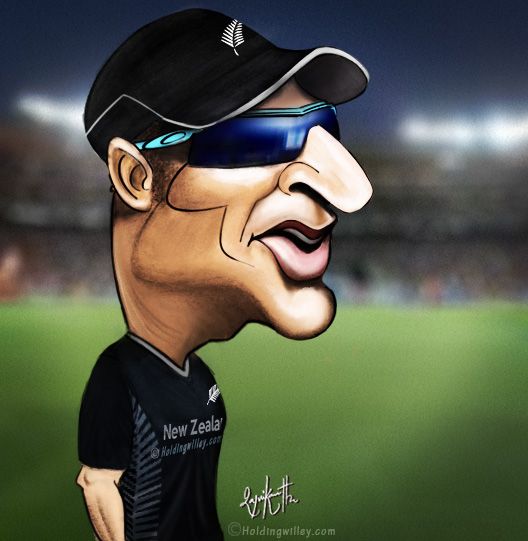 “As if this earth in fast thick pants were breathing, /a mighty fountain momently was forced”, writes Coleridge in his poem, Kubla Khan. Coleridge was just putting in words, the force of nature.
“As if this earth in fast thick pants were breathing, /a mighty fountain momently was forced”, writes Coleridge in his poem, Kubla Khan. Coleridge was just putting in words, the force of nature.
Brendon McCullum isn’t a poet. He chose a bat for a pen, but he can generate the same effect. He isn’t a mere spring of water but a mighty fountain. He is a storm, not a gentle breeze or a wind. McCullum in a cricket field could generate as much power as any poet could on paper.
The early 18th century is considered a revolutionary period in English literature due to the birth of romanticism. Poets dared to dream and opened out to new ideas. A shift from classical poem was evident. I can’t help but juxtapose the events that took place then to the events that have unfolded ever since McCullum took over as the captain of the New Zealand side.
The game in itself needed a pioneer to keep alive the excitement and the pleasure – the primary elements that any sport needs to deliver, and McCullum wasn’t the likeliest candidate to be the torch bearer. But he surprised everyone and enthralled every cricket fan on this planet, and he did it by being innocent and true to himself. He trusted his principles and stood by them.
He did not invent a new method, nor did he flummox any with his tactics. He kept it simple. He reminded everyone of the forgotten methods; the basics. He attacked with the new ball, as it was meant to be, he placed his fielders where the ball would most likely fly rather than having them as acting close in fielders. He attacked, even at the cost of some cheap runs. He was just being honest with his methods.
“
In the age of shorter boundaries, flatter decks and heavier bats, cricket had forgotten the other side of the coin. McCullum just flipped the coin. He stood by his bowlers and hardly misused his resources. Southee and Boult always had the pleasure of slips and gully, Milne and McClenaghan were never asked to bother about the runs they would leak. He knew he had to pick wickets to win matches, and he stuck to it.
”
McCullum as captain, like Coleridge and many other Romantic poets, didn’t hesitate to be bold. He wasn’t conservative in his approach, and expressed his thoughts with a mind as clean as Alph, the sacred river of Coleridge’s Kubla Khan. He has brought in a change in captaincy, a renaissance if it needs to be termed so.
McCullum the batsman is far more maverick than McCullum the skipper. His methods aren’t simple. His approach is not the kind any human should try to replicate. Stepping out to a Mitchell Johnson bouncer isn’t an option to a normal brain. With bat in hand, he puts his mind to rest.
He is savage. He can scythe through any opponent in any manner he chooses. He may well have been a combatant once, swinging steel instead of willow. He resembles no one in his strokes, how he cuts and pulls, as if the bowlers were never meant to exist. He chooses to ignore the purpose of a ball being bowled at him. It never crosses his mind that the ball - red or white, the colour never mattered - could eventually get him out. Not even an afterthought.
To watch McCullum throw his body onto the hoardings in an attempt to save, at most, a run, is one of the true joys witnessed on a cricket match. That exuberance and sudden burst of energy, regardless of getting himself hurt, is unmatched by any living being. He brushes the dust off his metal like hand with a smile on his face, as if to ask why the whole world is shocked by his routine leap – the one which always looks likely to result in unprecedented consequences.
In one aspect of his game, he blew the traditions to the smithereens, and in another he followed forgotten traditions. He batted with utmost madness and he captained the side with immense pride. He succeeded in both, for he expressed himself in both.
Wordsworth described poetry as a ‘spontaneous overflow of powerful feelings’. Brendon McCullum is an example of such poetry; maybe not with beautiful lines but definitely with powerful feelings.